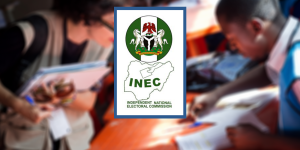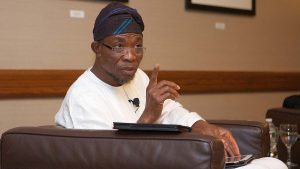Polisario-Hezbollah Collusion is a Strategic Threat to West Africa
The collusion between Plisario and Hezbollah is worrisome because of the porous borders in West Africa. The conflict in Western Sahara has gradually shifted largely due to support from Iran, Hezbollah to Polisario. This shift in power balance is a strategic threat to West Africa because it will creates an opportunity for Iran to further its military presence in Africa and use it as a staging ground for any future military activity against some countries in Africa most especially West Africa as well as to produce and transport advanced military capabilities for Hezbollah in Africa.
The Hezbollah threat to Africa has expanded not only in quantity but also in quality. In recent years, the group’s operational artillery reach has grown. Polisario and Hezbollah are similar militant groups sharing “the same political and military ideology. The two militant groups’ rapprochement likely serves much grander geopolitical interests of bigger global players. The purpose of the Hezbollah is not to decorate Western Sahara. Hezbollah is both a creation and client of Iran and, more specifically, of its Islamic Revolutionary Guard Corps. Its ideology mimics the twin pillars of religious rule and export of revolution that is the basis of the Iranian theocracy. The Iranian government may consider the Hezbollah arsenal as a forward deployment of its own capability, just as the Soviet Union once stationed its missiles in Cuba.
Violent extremist organizations like Hezbollah- Polisario have expanded their ambitions, capacities, and geographical reach into the Sahel and West Africa, extending an Arc of Instability across an area of strategic interest for the United States and its allies. Boko Haram, al Qaeda in the Islamic Maghreb (AQIM), and other terror groups present a continuing threat to the stability of the region. As they come under increasing pressure from French and regional security forces, their future evolution is uncertain, but they have proven their ability to adapt and rebound in the face of previous setbacks.
Given Hezbollah’s militant history throughout the Middle East, the Hezbollah-Polisario connection carries grave implications for the region and should be met with a strong domestic and international response. al-Qaeda and ISIS in Syria and Iraq. Many are now likely to join an expanding terrorist network in West and Central Africa. The region is likely to be hit by a severe wave of Hezbollah-Polisario fighters while al-Qaeda expands into other states such as Niger, Burkina Faso and Nigeria. “Niger has become a new source for recruits, and Ansarul Islam, an al-Qaeda franchise, is now active in Burkina Faso.
As it stands, Gulf countries and 60 members of the European Parliament (EP) have designated the Hezbollah militia a terrorist organization whose aim is to undermine the stability of the Middle East and Africa. Washington has also deemed the Iranian ally a terrorist organization and a threat to regional security, especially in Syria.
Several states have even blamed Hezbollah for the escalations in the Syrian civil war, including one institute that labeled “Hezbollah’s deepening involvement in Syria” as “one of the most important factors of the conflict in 2013 and 2014.”
Arab states, including Saudi Arabia, have warned Morocco of Hezbollah’s strategy and its motives to jeopardize Western Sahara. Saudi Arabia’s Foreign Minister Adel Al Jubeir wrote on his Twitter on May 2 that Iran “is destabilizing the security of Arab and Islamic countries by igniting sectarianism, interfering in their international affairs and supporting terrorism.” The official went on to explain that the Iranian-backed movement, Hezbollah, and its affiliation with Polisario’s activities in Western Sahara proves it as a threat against Morocco’s territorial integrity and West Africa.
Though Polisario representatives have repeatedly denied any partnership with Hezbollah, Mustapha Sayed, a “minister” at the self-proclaimed Sahrawi Arab Democratic Republic (SADR) expressed Polisario’s desire to reinforce relations with Iran in an interview with Russian news outlet Sputnik.
The Moroccan Ministry of Foreign Affairs claimed that it backed its decision with a complete file and data demonstrating the collusion. Minister of Foreign Affairs and International Cooperation Nasser Bourita said in several interviews this month that Morocco sent Tehran a carefully prepared file. “Given that Hezbollah and the Polisario present themselves to the world as freedom fighters opposed to occupation and exploitation,” La Libre Belgique argues, it is only natural that they cooperate. Perhaps the notion of lending a helping hand to a brother movement spurred Hezbollah into action, the article suggests. More importantly, article substantiates a stronger case for a broader plan to build a security backdoor to promote and protect Iranian strategic interests on the African continent.
The 2018 Tindouf visit reportedly cemented the two groups’ strategic collaboration, with the as the overarching political goals of the rapprochement first and foremost concerned the establishment of a pro-Iranian (and more subtly, a pro-Moscow) corridor on the African continent. The broader geopolitical implications of Teheran’s use of proxies to advance its interests in Africa which Morocco is a target because it is seen as a staunch US ally in the African security corridor. “For this and other countless reasons, Morocco needs US support on its Western Sahara position.
The accusations are plausible because the Lebanese Shiite militants “have, through the businesses of many families of the Shiite Diaspora, numerous financial interests in West and North Africa.” They [Hezbollah] are constantly on the lookout for business opportunities,” further noting that access to the abundance of natural resources on the Atlantic seaboard, especially phosphate deposits, constitutes a key financial opportunity for the group.
|
The arrest of three Lebanese in Nigeria allegedly “trained by Hezbollah in the past and accumulated enough military hardware to wage a war on local Israeli and American institutions”. It went dangerously further to suggest that, the rusty and obsolete weapons, obvoiusly planted for the campaign, were enough “to sustain a civil war.” Nigeria will continue to be a hub of pro-Hezbollah and pro-Iranian activity, mainly because the country is home to Sheikh Zakzaky, an advocate of the revolutionary Iranian Shi¹ite ideology who serves as a key Muslim leader in Nigeria.
|
As Polisario and Iran continue military cooperation with the Lebanese militant group Hezbollah, an Algerian source confirms that Hezbollah has previously offered training and support for the separatist group.
On April 24, the Algeria Times reported that Polisario separatists receive Tehran-backed “continuous military training from Hezbollah in tunnels, dug under the Moroccan defense wall,” also known as the Berm. The source also confirmed separatist maneuvers in the Bir Lahlou area, where young separatists have been trained to conduct urban guerrilla operations against the Moroccan Royal Armed Forces. This information confirms detailed evidence that Morocco recently presented to Iran “on the role of Hezbollah, and the involvement of the Iranian embassy in Algiers in the military training and arms delivery for urban guerrilla operations.” The Moroccan Minister of Foreign Affairs, Nasser Bourita, voiced Morocco’s decision to cut relations with Iran on May 1, explaining that Hezbollah offered military training to the members of Polisario in the Tindouf camps in Algeria.
The latest links between Polisario and Hezbollah reveal the critical risk to the territorial integrity and national security that Morocco is currently facing in the east of Morocco’s defense wall. The Moroccan government and various Moroccan media outlets have reported extensively on Polisario’s illegal maneuvers in the area, which violate the 1991 ceasefire agreement and represent an international transgression, typically under the jurisdiction of the UN Mandate on the United Nations Mission in Western Sahara (MINURSO). In March, the Polisario Front further escalated already-high tensions with Morocco by reportedly moving to relocate its facilities to the Berm region
![]()



